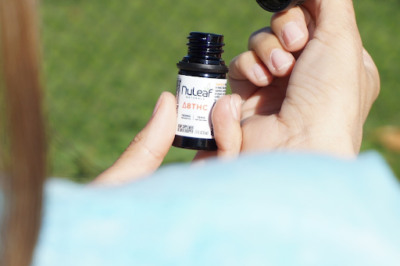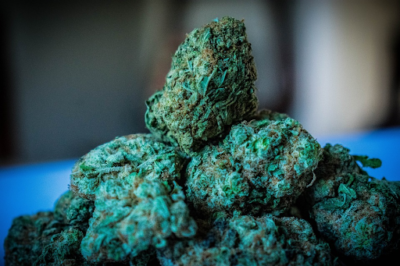Recently, Delta 8 has become more popular as a therapeutic agent due to its high affinity for the endocannabinoid system. Delta 10 is a much newer compound, and research on it is still in its infancy. Despite this, there has been a lot of buzz surrounding it due to its potential medicinal benefits. Both compounds have similar effects on the body because they interact with the same receptors in the brain and body, but their chemical structure differs slightly.
 https://cdn.pixabay.com/photo/2021/03/18/19/11/cbd-6105639_960_720.jpg
https://cdn.pixabay.com/photo/2021/03/18/19/11/cbd-6105639_960_720.jpg
What Is Delta 10?
Delta 10 THC is a relatively new compound in the cannabis industry, and as its name implies, it’s a distinct form of tetrahydrocannabinol. It binds to specific cannabinoid receptors throughout the body, potentially producing effects ranging from mild to more potent according to individual tolerance levels. Delta 10 is similarly characterized by euphoria, relaxation, and increased appetite; however, because it is only a product derived from hemp-based sources — as opposed to marijuana plants — this substance is much less psychoactive than traditional THC. It packs many potential therapeutic benefits while producing fewer magical side effects than many well-known cannabinoids.
https://cdn.pixabay.com/photo/2021/03/18/19/11/delta-8-6105641_960_720.jpg
What Is Delta 8?
Delta 8 is a unique and distinctive cannabinoid found in the hemp plant. It has a lot of beneficial properties and can help promote relaxation, reduce stress, and even provide a sense of overall wellness. This substance binds to CB1 and CB2 receptors throughout the brain, body, and organs, affecting many bodily functions. For example, because D8 binds with both receptor types, it can help balance out your endocannabinoid system, potentially leading to improved physical and mental well-being. This drug is also known for its anti-anxiety effects as it modulates anxiogenic responses, which can help induce calmness and relaxation during distress.
Differences Between Delta 8 And Delta 10
So what is Delta 10 vs. Delta 8? Delta 10 got created through a process known as temporization or Delta-10 decarboxylation from CBD isolate. The result is a molecule structurally similar to Delta 8 but contains an additional double bond at the C10 position on the cannabinoid backbone. This extra bond gives this substance a slight physiological edge compared to D-8 regarding therapeutic effects. It also has higher potency levels than its cousin and can be used in lower doses to reach desired results.
In terms of medicinal benefits, many users report feeling uplifted and relaxed after taking Delta 10 while also experiencing improved focus and clarity of thought. The compound may also effectively treat chronic pain and inflammation, making it an appealing option for those suffering from various conditions such as fibromyalgia and rheumatoid arthritis. Studies suggest that this could reduce anxiety without causing psychoactive side effects like those associated with THC-containing products such as marijuana or other cannabis derivatives.
https://cdn.pixabay.com/photo/2020/04/02/13/45/marijuana-4995234_960_720.jpg
Bottom Line
While both compounds have unique benefits and drawbacks, one thing is sure: both show great promise for medical use due to their ability to interact with the human body’s endocannabinoid system. As research continues into both compounds, we may soon discover which offers more therapeutic relief for our ailments. Until then, it’s important to remember that regardless of which product you choose, always consult your doctor before beginning any supplement regimen!



